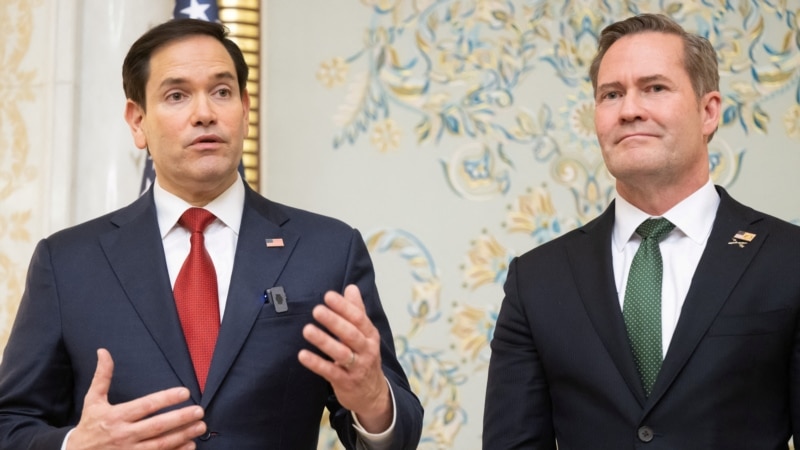Republicans Fretted Over Ceding Spending Power to Trump. Then They Voted to Do It.

Before casting his vote in favor of President Trump’s request to claw back $9 billion for foreign aid and public broadcasting, Senator Thom Tillis, Republican of North Carolina, made a striking admission.
“We have no earthly idea what specific cuts will occur,” Mr. Tillis said, adding that the White House had not provided senators with detailed information on which programs it would be targeting.
But Mr. Tillis, who is retiring at the end of his term in 2026, said he would vote for it nonetheless.
“I’m willing to give O.M.B. and the president the benefit of the doubt,” he said, referring to the White House budget office.
He was not the only Republican who made the case that the legislation trampled on Congress’s constitutional responsibilities, lamenting the move right up until the moment they voted to approve it. The House, where Republicans have been far more docile about handing over their power to the president, was poised to give final approval of the measure as early as Thursday evening, sending it to Mr. Trump for his signature.
It has become something of a routine among Republicans on Capitol Hill. Faced with a president with a maximalist view of his power who demands unflagging loyalty and disdains dissent, G.O.P. lawmakers — even those who grouse about doing so — have repeatedly bowed to Mr. Trump on the most fundamental issues, giving over constitutional prerogatives in the process.
In this case, while the White House’s push to rescind $9 billion in federal funding concerned a minuscule amount of money in the grand scheme of the federal budget, it was a major move given how tightly Congress has historically guarded its power over spending.
Russell T. Vought, the White House budget director, has said he intends to send more such rescissions packages requesting that Congress go along with his efforts to cancel funds. It is a formal and legal channel available to the White House, but it has rarely been used, rarer still successfully.
When Congress approved a stand-alone rescissions bill in 1992, Senator Roger Wicker of Mississippi recalled, lawmakers in both parties in the House and Senate had “exact information about what programs would be targeted and where the cuts would be made, and by what amount.”
“This Congress will not be allowed to choose those specific cuts; that will be done by somebody in the Office of Management and Budget in the White House,” Mr. Wicker, the Republican chairman of the Armed Services Committee, said in a floor speech during debate on the package. “And in this situation, it will amount to the House and Senate basically saying, ‘We cede that decision voluntarily to the executive branch.’”
He said that the request “concerns me as perhaps approaching a disregard for the constitutional responsibilities of the legislative branch.” And he noted that he was “not the only one who has expressed the concerns.”
Yet Mr. Wicker voted for the package, arguing that taking action to rein in the nation’s ballooning debt “overrides the specific objections that I have.”
Both targets of the rescissions package, foreign aid and public broadcasters, have in recent years become perennial targets for Republicans, and most lawmakers in the party said they were thrilled to be able to trim even a small amount of federal funds. Some appeared to have made the calculation that they would rather back the cuts than be seen opposing reductions in spending.
Senator Mitch McConnell of Kentucky, the chairman of the subcommittee that controls military spending, initially voted to block the package from advancing.
“O.M.B. is the problem,” he told a reporter for Punchbowl News. “They won’t tell us how they’re going to apply the cuts.”
But Mr. McConnell ultimately voted to rescind the funding, saying that “my belief in the importance of American soft power is not in conflict with my commitment to holding government accountable for inefficiency.”
“The administration’s rescissions request is not the way I would prefer to act on this responsibility,” he said in a statement, “but faced with a choice between spending reduction and no reduction, I voted in favor of the rescission.”
Others tried to shield specific programs entirely. Republican senators worked behind the scenes to protect funding for the President’s Emergency Plan for AIDS Relief, known as PEPFAR, as well as aid to Jordan and Egypt; Food for Peace, a program that provides food assistance to other countries; and some global health programs.
Senator Mike Rounds of South Dakota, who had previously indicated that he would oppose the request because of the cuts to public broadcasting, supported the package after receiving assurances from top administration officials that they would steer unspent funds to tribal radio stations in the form of grants for the next year. (It was not clear whether that would happen, and the head of a network of Native radio and television stations privately appealed to Mr. Rounds to oppose the package, saying the deal he had made was unworkable.)
Republican opponents of the legislation said deferring to a president on what funds would and would not be available was the wrong way around for Congress, which is supposed to have the power of the purse.
“We’re lawmakers; we should be legislating,” Senator Lisa Murkowski of Alaska said in a speech on the Senate floor on Tuesday night announcing her opposition to the package. “What we’re getting now is a direction from the White House and being told, ‘This is the priority. We want you to execute on it. We’ll be back with you with another round.’ I don’t accept that.”
What's Your Reaction?
 Like
0
Like
0
 Dislike
0
Dislike
0
 Love
0
Love
0
 Funny
0
Funny
0
 Angry
0
Angry
0
 Sad
0
Sad
0
 Wow
0
Wow
0








































